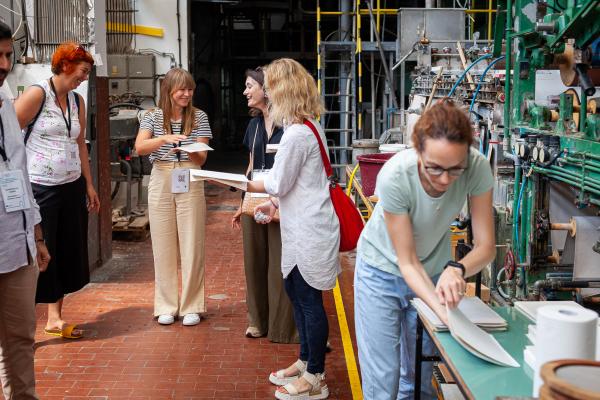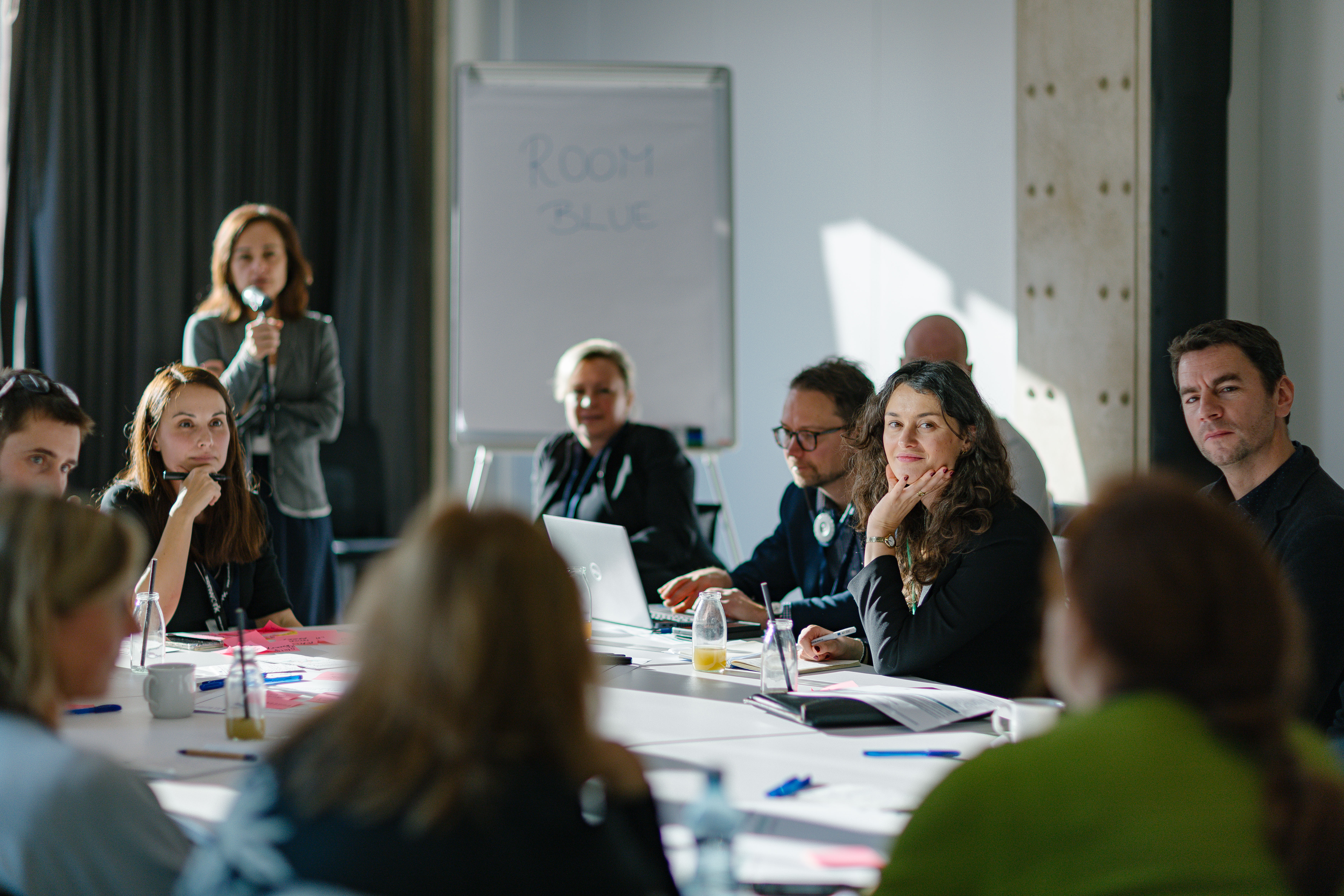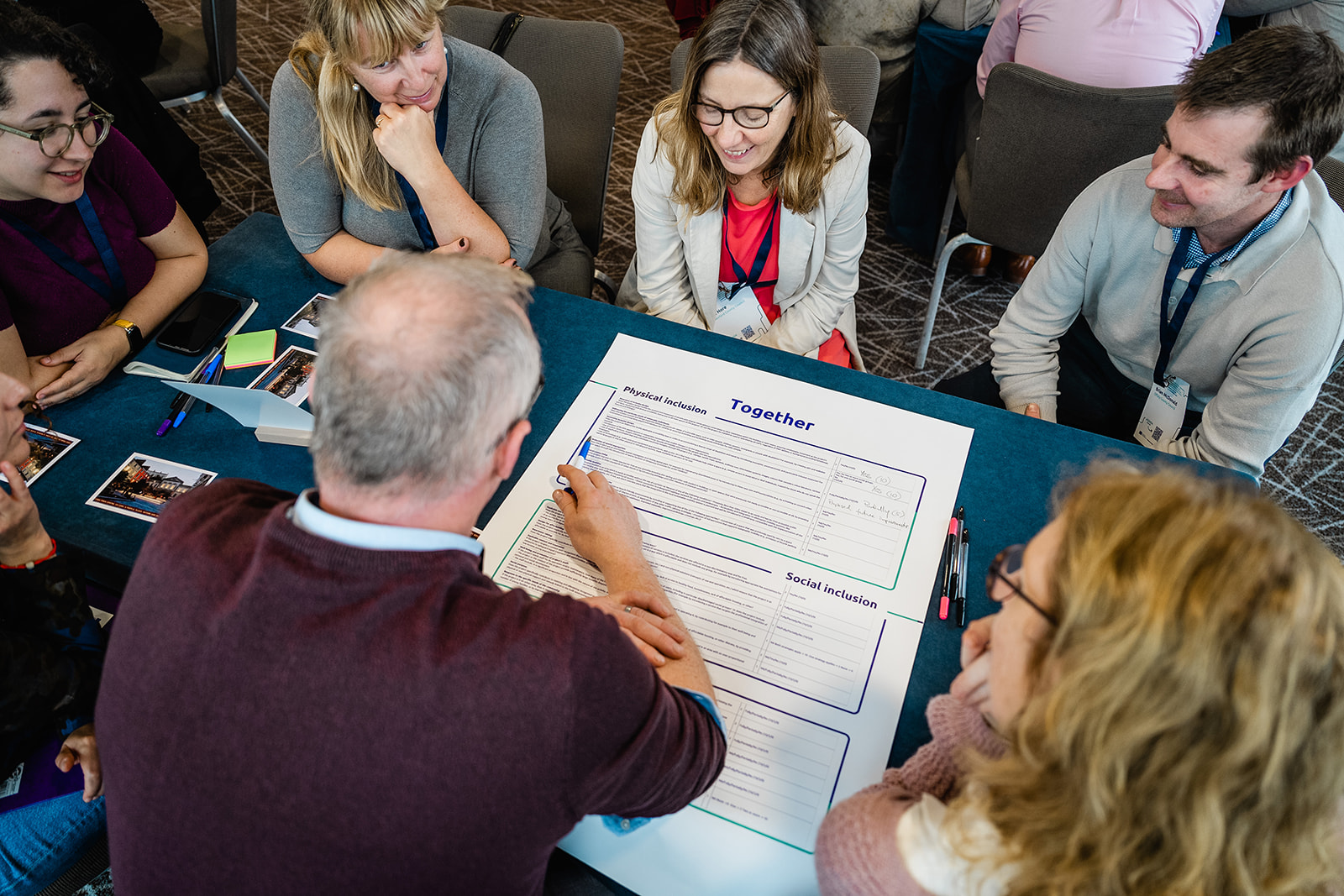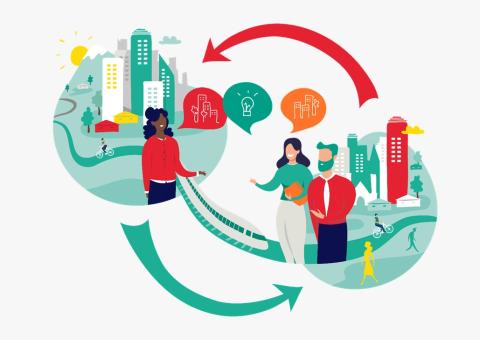
The value of collaboration: Capacity building for an equitable digital transition
The value of collaboration between cities
Collaboration between cities in digital transition can be seen as a way to facilitate innovation, share resources efficiently, and ensure equitable technological development rather than engaging in a zero-sum competition for investments, talent, or recognition. European cities, engaging with the idea of collaborating with each other, have a variety of ways to address technology together.
For example, instead of each city developing its own digital platforms from scratch, cities can co-develop and share infrastructure like cloud services, AI applications, and open data portals. They can use open-source solutions (e.g., open urban data platforms) that allow cities to learn from each other, avoid redundancy, and improve services together. Instead of hoarding data, cities can create data commons where anonymised information is shared to improve urban planning, mobility, and emergency response.
Cities and towns at the metropolitan scale can collectively negotiate with tech providers for better pricing and interoperability of smart city solutions, ensuring that digital systems work seamlessly across urban areas. By defining common standards for data sharing and cybersecurity, they can enhance compatibility and facilitate cross-city collaboration.
Cities can establish joint urban innovation labs where start-ups, researchers, and policymakers across different locations co-create digital solutions, and create joint ventures between cities that can attract larger investments and reduce financial risks.
Most importantly from our perspective, cities can set up peer-learning networks where public administrators and tech teams exchange knowledge and co-develop strategies, and cities with similar challenges (e.g., traffic congestion, climate change adaptation, digital inclusion) can share best practices and jointly pilot solutions.
Capacity building for an equitable digital transition
This is where the European Urban Initiative and its capacity building opportunities play a key role. EUI addresses the challenges of digital transition through its City-to-City Exchange and Peer Review activities by facilitating capacity building and collaborative learning among urban authorities. These programmes enable cities to exchange good practices, explore innovative solutions, and collectively tackle the complexities associated with digital transformation.
Tailored learning experiences for a successful digital economy
The City-to-City Exchange programme connects urban authorities to collaborate directly, focusing on specific challenges related to designing and implementing integrated, place-based strategies within the framework of Cohesion Policy. This programme emphasises tailored learning experiences, allowing cities to define the content, timing, and format of their exchanges based on their unique needs.

Capacity building event
While City-to-City Exchanges cover a great variety of topics, several exchanges in the past year focused on different aspects of digital transition. In April 2024, representatives from Brno, Czech Republic, embarked on a City-to-City Exchange to Tallinn, Estonia. This exchange aimed to explore the foundational elements of a successful digital economy and gather insights to bolster Brno's innovation and entrepreneurship ecosystem. The Brno delegation, comprising municipal officials and members of the Technology Park, sought to understand Tallinn's strategies that have positioned it as a leader in digitalisation and e-governance. With a population of approximately 380,000, Brno is often dubbed the "Moravian Silicon Valley," hosting numerous international and Czech enterprises, start-ups, research centres, and universities. The city also attracts a youthful demographic, being home to about 80,000 students. The exchange was designed to provide practical examples of innovation, entrepreneurship, and smart city projects to inspire meaningful local changes in Brno.
The Brno delegation explored Tallinn’s digital and innovation ecosystem through key visits. At the e-Estonia Briefing Centre, they learned about Estonia’s three-decade digitalisation journey, underpinned by a universal electronic ID system enabling seamless transactions and highly automated services, including quick tax filings. The MELT Forum, focusing on AI, introduced initiatives like Test in Tallinn and Tallinnovation, which support smart city solutions. At the FinEst Centre for Smart Cities, the delegation examined Tallinn’s role as a testing ground for urban innovations. The visit to Tehnopol Science and Technology Park highlighted the role of startups in economic growth, with Tallinn’s park hosting over 350 companies compared to Brno’s 40. Lastly, the Mektory Innovation Centre, part of TalTech, demonstrated the triple helix approach, fostering collaboration between academia, businesses, and government. These visits provided Brno with actionable insights to enhance its own innovation landscape.
The exchange provided Brno with key insights for fostering innovation. Tallinn’s culture of agility and collaboration encourages networking and a “done is better than perfect” mindset, which Brno could adopt to enhance productivity. Innovative programs like Test in Tallinn and Tallinnovation demonstrate effective stakeholder coordination, suggesting Brno refine its roles and reduce internal competition. A user-centric approach prioritising well-being and efficiency in urban projects could improve Brno’s public services. The Triple Helix Model, integrating academia, industry, and government, highlights the need for more structured collaboration in Brno’s innovation ecosystem. Lastly, Tallinn’s “living lab” concept, which allows real-world testing of new technologies, could inspire Brno to open its cityscape for experimentation, driving forward smart city initiatives.

CB event
In another instance, Varaždin, Croatia, and Plasencia, Spain, collaborated to explore how digital transformation can support sustainable tourism while preserving cultural and environmental integrity. Through the City-to-City Exchange, Varaždin’s team visited Plasencia to exchange knowledge on using digital tools to enhance tourism. A key innovation was a mobile application centralising tourist and cultural content, offering practical services while ensuring scalability, data protection, and adaptability. Plasencia demonstrated how the app aligns with sustainable tourism goals, enhancing visitor experiences without compromising cultural or natural assets.
During Plasencia’s visit to Varaždin, discussions expanded to cultural heritage, entrepreneurship, and innovation, revealing further collaboration opportunities. The exchange also highlighted economic and agricultural development in Plasencia’s Extremadura region. The on-the-spot experience of Plasencia’s mobile application helped Varaždin to prepare its own application for fostering tourism growth while ensuring the well-being of local communities.
At another occasion, Liepāja, Latvia, Gava, Spain and Tampere, Finland met to look into the use of digitalisation for citizen engagement. The exchange between the three cities included the identification of useful project management tools and platforms, the exploration of new methods and digital tools for fostering citizen engagement, the comparison of different participatory budget structures and the compilation of a list of good practices for sustainable, innovative and green procurement.
Sustainable Urban Development (SUD) strategies for digital transition
Another capacity building opportunity offered by the European Urban Initiative is the Peer Review programme. This programme offers a structured process where urban authorities can have their strategies and policies evaluated by peers from other cities. This process involves a comprehensive assessment of challenges and potential solutions, fostering mutual learning and capacity building. Participating cities benefit from first-hand evaluations and insights, which can inform the design and implementation of Sustainable Urban Development (SUD) strategies.
While Peer Review events focus on a broad range of topics including stakeholder involvement, metropolitan governance, monitoring or financing, digital transition often emerges as a transversal theme, with peers bringing examples of digital tools and procedures.
For example, at the Peer Review in Thessaloniki (Greece, June 2023), the city of Maia, Portugal, was looking for ways to involve youngsters and their insights in the city’s SUD strategy and new institutions. The city of Vicenza, Italy, evoked their application for teenagers with information about activities, summer job offers, contact points with the municipality and other institutions. The city of Łódź, Poland, evoked a playful competition with QR codes placed on buildings to be renovated to foster participation through digital means.
At another occasion, in Coimbra (Portugal, November 2023) the city of Igoumenitsa, Greece, was exploring ways to monitor the implementation of the city’s SUD strategy with the right indicators. Alba Iulia, Romania explained the importance of using quantitative indicators, based on surveys and questions to stakeholders, also collected at the occasion of visiting various neighbourhoods in the city. Alba Iulia has created a kind of a “local barometer platform” based on feedback from citizens and various stakeholders – it allows the city to better understand the “mood” related to various actions of the SUD process. Besides the Smart Alba Iulia application, the municipality also uses public Wi-Fi access as a means to conduct simple surveys: users can access Wi-Fi in public spaces if they answer a couple of questions.
More recently, in Jiu Valley (Romania, September 2024) the city of Ústí nad Labem was inquiring about how to implement participatory processes for the city’s Integrated Territorial Investment strategy that engage the local population. Peer Experts underlined the importance of enhancing the already existing digital platform with interactive functions where citizens can provide real-time feedback on ongoing and upcoming projects. This could include tools such as surveys, idea-sharing spaces, and participatory budgeting mechanisms, allowing for more direct and continuous engagement with citizens. Jonadi, Italy, suggested using participatory processes to define more relevant indicators, while Piraeus, Greece, evoked their use of a digital twin of the city, offering transparency, to engage both citizens and private investors.
How to get involved?

C2C exchanges
These are only a few examples among many occasions when ideas, experiences and solutions related to the digital transition have been evoked and elaborated at City-and-City Exchange and Peer Review events. In their first years of running, EUI capacity building programmes have proven to be a great way to share insights and exchange experiences to support cities in some of the many challenges they face.
It is not too late to join one or more of these programmes: Calls to join Peer Reviews as Cities under Review or Peers open in regular intervals, and the Call for Application for City-to-City Exchanges is continuously open. Interested cities are supported by the EUI team and a set of experts at every step of the application and implementation processes.
Exchange and collaboration, supported by EUI, may point towards a European model of the smart city, based on collaboration, transparency, open infrastructures and sharing. With the help of sharing experiences, cities can view digital transition as a networked effort where advancements in one place benefit others. By fostering digital solidarity, cities can achieve greater resilience, inclusivity, and technological sovereignty while avoiding the pitfalls of fragmentation.
